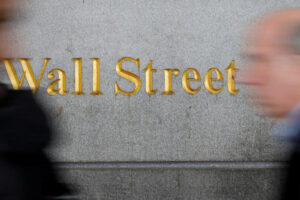Extreme Investor Network: Understanding the Recent Stock Market Turbulence
The recent turbulence in the stock market has left investors feeling uneasy as fears of a weakening economy continue to grip markets. On Monday, major indices such as the Nasdaq Composite, S&P 500, and Dow Jones Industrial Average all experienced significant losses, with the Dow shedding nearly 2% or almost 800 points in afternoon trading.
One of the key factors contributing to this sell-off is the sharp decline in the 10-year Treasury yield, which has dropped roughly 50 basis points in less than two weeks. Additionally, market volatility has spiked, as evidenced by the VIX shooting up above 60 for the first time since 2020.
The sell-off was further exacerbated by the Bank of Japan’s surprise interest rate hike, which led to a massive sell-off in Japan’s Nikkei 225. Ed Yardeni, president of Yardeni Research, believes that the sell-off in US stocks is largely attributable to the unwinding of the carry trade, where speculators borrowed money at 0% interest rates in Japan and invested it in high-flying tech stocks.
As investors adjust their expectations for domestic monetary policy, the likelihood of more rate cuts this year has increased significantly. Markets are currently pricing in a 95% chance of a 50-basis-point interest rate cut by the end of the Fed’s September meeting.
Despite the recent market sell-off, some Wall Street strategists believe that this is not necessarily a sign of a flailing US economy. Kevin Gordon, senior investment strategist at Charles Schwab, points out that defensive sectors like Consumer Staples and Utilities have been leading the market, while Technology has seen the largest losses.
Gordon emphasizes that market reactions are often driven by expectations rather than actual data. This sentiment is echoed by Citi US equity strategist Drew Pettit, who sees the recent market action as a healthy adjustment after a period of excessive optimism.
While the recent market turbulence may be concerning for some investors, Pettit believes that the fundamental story for stocks to end the year higher than their current levels remains intact. It’s essential for investors to stay informed and stay ahead of market trends to make informed decisions about their portfolios.
At Extreme Investor Network, we provide in-depth analysis of the latest stock market news and events that are moving stock prices. Stay informed and make smarter investment decisions by following us for the latest financial and business news.

